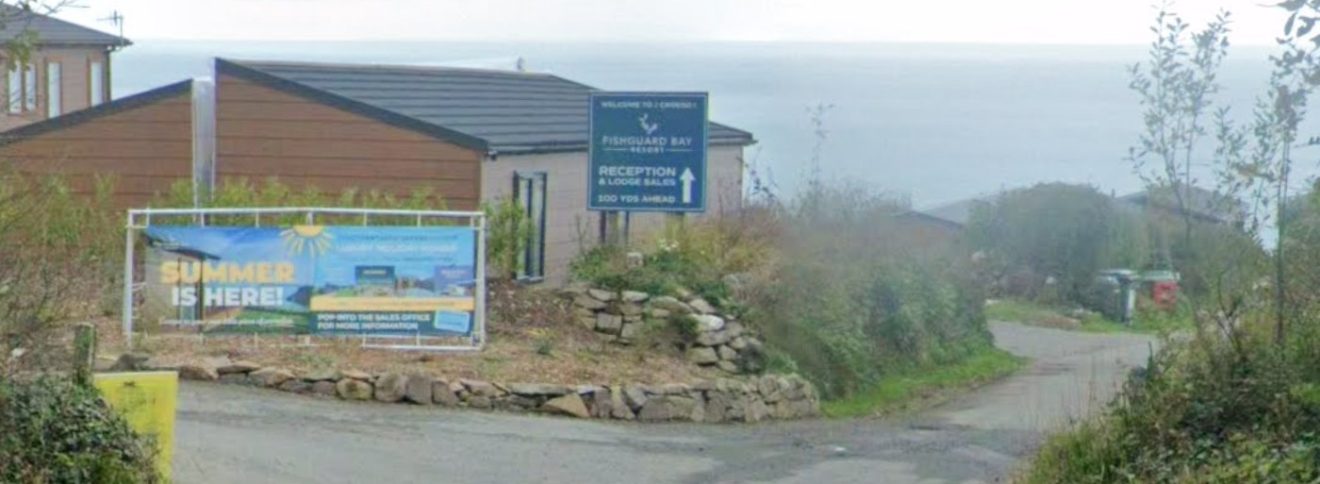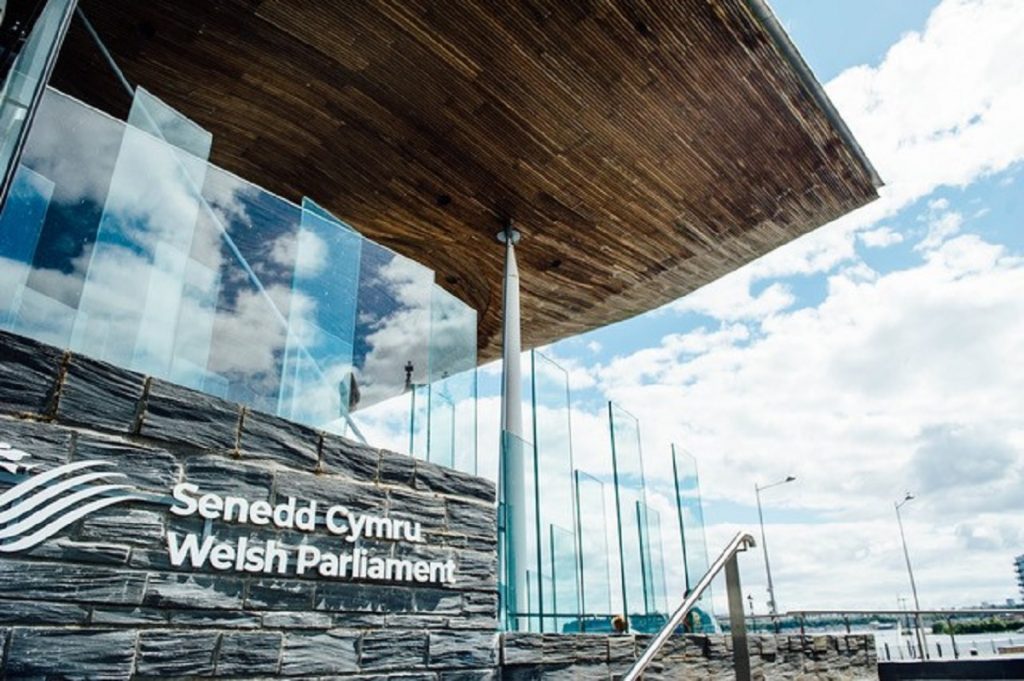News
Train drivers’ union urges pay equality across UK rail network

THE ASSOCIATION of Train Drivers and Operators (ASLEF) has made a resolute plea for pay equality among train drivers across the UK rail network.
In a recent development, the union has recommended its members in Scotland and Wales accept new pay offers, while simultaneously demanding the UK government to extend a similar deal to train drivers in England.
ASLEF’s proposition comes after receiving substantial pay offers from ScotRail and Transport for Wales, reflecting their commitment to fair compensation for their members.
Transport for Wales has proposed an enticing four-year agreement that would grant drivers an impressive 8.9% increase, which would be backdated to 1 April.
This progressive increment would elevate the earnings of drivers to an annual salary of £63,200. Furthermore, an additional 7.9% increase is set to follow on 1 April 2024, with a subsequent 4.1% rise slated for December 2024, further enhancing drivers’ salaries to an admirable £71,000.
ASLEF’s plan also outlines the inclusion of RPI inflation-based adjustments, ensuring continued growth in remuneration from 1 April 2025 onwards.
Scotland’s train drivers have been presented with a one-year deal that would see their pay augmented by 5%, propelling their salaries from £55,264 to £58,027. ASLEF has underscored the significance of these offers, heralding them as substantial advancements achieved through effective negotiations.
However, the ultimate decision rests with ASLEF members, who will have the opportunity to determine the outcome of these proposals.
Mick Whelan, ASLEF’s dedicated General Secretary, emphasized the stark disparity between the progressive actions taken by the Scottish and Welsh authorities and the Westminster government’s response.
Whelan noted that the 15 train companies embroiled in the ongoing dispute, who have failed to offer salary increases since 2019, alongside the Tory government supporting them, have shown little interest in reaching a resolution that serves the interests of passengers, businesses, and railway staff. ASLEF is committed to rectifying this imbalance and ensuring fair treatment of train drivers across all regions.
While the Department for Transport maintains that its offer to train drivers in England is “fair and reasonable,” ASLEF remains steadfast in its pursuit of pay equality throughout the country.
The government spokesperson reiterated that the proposal encompasses a salary increase from the current average of £60,000 to £65,000 for train drivers in England, coupled with vital reforms designed to secure the future of the rail industry.
The spokesperson urged ASLEF to present the offer to its members, providing them with an opportunity to voice their opinions and avoid any further disruptive measures.
ASLEF’s firm stance on pay equality for train drivers serves as a reminder of the pressing need to address wage discrepancies across the UK rail network.
Achieving parity in compensation will not only uplift the livelihoods of train drivers but also contribute to enhanced service delivery, benefiting passengers and businesses alike.
The outcome of these negotiations will undoubtedly shape the future of the railway industry in Scotland, Wales, and England, and it remains to be seen how the UK government will respond to ASLEF’s demands for fairness and equity.
News
Labour promises ‘most significant investment in Britain’s ports in a generation’

LABOUR has said this week that it will “Build it in Britain” with the most significant investment in Britain’s ports in a generation, as part of Green Prosperity Plan to support the creation of 650,000 good jobs across the country.
A Labour Government will “Build it in Britain” Keir Starmer said on Thursday, as he visited the North East of England to highlight Labour’s plans to deliver the most significant upgrade of Britain’s ports in a generation.
Visiting a port in the North East, Labour Leader Keir Starmer, Shadow Chancellor Rachel Reeves, and Shadow Energy Secretary Ed Miliband will set out how Labour’s £1.8 billion investment in Britain’s port infrastructure will help crowd billions more of private sector investment into the UK’s energy industry.
Labour’s announcement comes after Jo Stevens, Shadow Secretary of State for Wales, visited the Port of Milford Haven in Pembrokeshire last month alongside with Henry Tufnell, Labour’s parliamentary candidate for Mid and South Pembrokeshire, to learn more about the port’s operations and challenges.
After the visit, Shadow Welsh Secretary Jo Stevens said: “Upgrading our ports, like this one here in Milford Haven, can help us seize the golden opportunity we have to become a world leader renewable energy, delivering cheaper bills and the jobs of the future.
“But the Conservative government is holding Wales back, with narrow-minded, poorly run investment schemes that leave us lagging behind international competitors.
“A UK Labour government will switch on GB Energy to invest in projects that can secure our lead in floating offshore wind, unlocking the jobs and investment that the Tories have left to languish.”
Henry Tufnell, Labour’s candidate in this year’s General Election, added: “Pembrokeshire’s first Labour MP, Desmond Donnelly, was instrumental in the creation of the Port of Milford Haven, transforming Pembrokeshire’s economic fortunes. Today, as in the 1950s, we face a crossroads. We must put our county at the forefront of a new Labour Government’s industrial strategy to build it in Britain.
Labour’s Green Prosperity Plan will secure our energy supply, develop industry, and create good well paid jobs right here in our county. We don’t want the young people of Pembrokeshire to feel they must leave their home county to get on in life. We want to provide opportunity here, and we want to provide it now.”
Labour’s plan for ports will help reverse fourteen years of industrial decline under the Conservatives and support domestic manufacturing across the country. The pledge is funded through Labour’s Green Prosperity Plan, which includes a proper windfall tax on the oil and gas giants making record profits, to fund investment in British industries.Keir Starmer’s announcement comes as Labour confirms that its Green Prosperity Plan will help support the creation of up to 650,000 good jobs in Britain’s industrial heartlands, including here in Pembrokeshire, by crowding billions of private investment into industries such as Britain’s nuclear, steel, automotive, and construction industries.
The last Labour government led the way on upgrading Britain’s ports, providing funding for the development of port sites to support offshore wind turbine manufacturing. This industrial advantage has been squandered after fourteen years of the Conservatives, with recent research showing the UK could have created almost 100,000 more jobs in the wind industry if it had followed Denmark’s example in recent years and built up domestic supply chains in clean energy.
Speaking ahead of the visit, Labour Leader Keir Starmer outlined the choice facing millions of voters: continued industrial decline after 14 years of Conservative rule, or national economic renewal with Labour, saying:“The legacy of fourteen years of Conservative rule is Britain’s industrial strength reduced to the rubble and rust of closed-down factories. They have let good jobs go overseas and done nothing about it, and every community has paid the price.
“A Labour government will reindustrialise Britain – from the biggest investment in our ports in a generation, to a British Jobs Bonus to crowd billions of investment into our industrial heartlands and coastal communities.“
The wealth of Britain was once built on a bedrock of industrial jobs that offered security and a good wage. By investing in Britain’s homegrown energy sector, we can rebuild this dream for the twenty-first century- good jobs, higher wages, and the pride that comes from good work for all.”Through policies such as Great British Energy, the National Wealth Fund, and the mission for Clean Power by 2030, a Labour government will invest in technologies like floating offshore wind, hydrogen, nuclear, and carbon capture and storage, which will help secure Britain’s energy independence.
This will create a new generation of skilled jobs in growing industries, which will offer people good wages, give confidence in their job security, and provide them with opportunities to progress. This policy is part of Labour’s Green Prosperity Plan, to cut energy bills for families, make Britain energy independent, and rebuild the strength of British industry.
This historic investment in working people and their communities is the only way out of the high energy bills, energy insecurity, and the doom loop of low growth, high taxes and crumbling public services under Rishi Sunak’s Conservatives.Commenting on Labour’s landmark plan to invest in Britain’s port infrastructure, Shadow Energy Secretary Ed Miliband MP said: “Making Britain a clean energy superpower requires flourishing national ports. Whilst the Conservatives are letting other countries plunder jobs that could be ours here in Britain, Labour has a plan to help win the race for the industries of the future.“
This is what Labour’s Green Prosperity Plan will do for every community in Britain – slash energy bills, create good jobs, boost our national energy independence, and help to tackle the climate crisis.”
Business
Scheme to upgrade Dinas Cross holiday park withdrawn

PLANS to create a ‘five-star resort’ in one of Wales’s most popular holiday locations have been withdrawn.
In an application submitted to Pembrokeshire Coast National Park, Chester-based Boutique Resorts Ltd sought permission to relinquish 50 mixed touring pitches (caravans and tents) at Fishguard Bay Resort, Dinas Cross, replacing them with “36 high quality timber-effect holiday lodges”.
The application, recommended for refusal at the April 24 meeting of the national park’s development management committee, also included an increase in the site area of the approved park, a new entrance, a new reception lodge, staff and visitor parking area, with extensive environmental improvements.
The site, established in the 1950s, currently has planning permission for 50 static caravans and 50 mixed touring units, and it is intended 23 of the proposed lodges to be sited at the entrance, with a further 13 throughout the site.
Despite the proposals seeking a reduction in outright numbers, the applicants say the scheme would see an increase in the number of full and part-time jobs associated with the resort, from 29 to 62 jobs.
A previous application was refused in 2019, mainly on visual impact, ecological impact and highway impact, and the applicant has sought to address the issues raised by that refusal, a supporting statement says.
It adds: “The applicant purchased the site in 2014 with the intention to upgrade the site into a five-star luxury resort. This is very much still the applicant’s intention and whilst he has replaced some existing static caravans with luxury lodges, he also seeks to replace the touring caravans and tents with luxury lodges too.
“The resort is now considered one of the most desirable holiday parks on the Pembrokeshire Coast which is evident on the number of holidaymakers who return to the resort year on year. Such is demand for luxury lodges on the site, the applicant requires additional units.
“The applicant now wishes to move the resort further by replacing the mixed touring pitches with luxury lodges but also provide a much-needed new entrance into the resort.”
Objections to the scheme were received from the National Trust, the national park’s strategic policy and ecologist, and the South Wales Trunk Road Agency, and 12 members of the public, along with one letter of support.
The application was recommended for refusal for reasons including it was “likely to have a significant detrimental impact on the special qualities of the National Park by intensifying the visual impact and intrusion of a large static caravan site within the extensive coastal views of this section of the National Park,” it would represent an intensification of the site, and was likely to “have an unacceptable impact on neighbouring residential amenity through increased noise and traffic movements”.
The application, listed for consideration by park planners next week, has since been withdrawn.
News
First step towards council tax and business rate reform

MAJOR reforms to council tax and business rates have cleared the first hurdle in the Senedd.
MSs backed the general principles of the local government finance bill, which would introduce a five-year cycle for council tax revaluations from 2030.
The bill would lay much of the groundwork for Welsh Government proposals to redesign council tax, with current bands based on property values from 2003.
It would also increase the frequency of business rates revaluations from five to three years.
Rebecca Evans told the Senedd the bill forms a vital part of the Welsh Government’s wider programme of local tax reform.
Wales’ finance minister explained the bill would enable ministers to modify business rate relief exemptions and the multiplier to support policy priorities.
John Griffiths outlined the local government committee’s stage-one report recommendations aimed at improving the bill and guarding against unintended consequences for taxpayers.
Mr Griffiths explained that the bill provides a framework for future policy changes to be made by the Welsh Government via secondary legislation.
The Labour MS, who represents Newport East, said the committee heard concerns that this limits opportunity for public engagement and scrutiny by the Senedd.
Welcoming the Welsh Government’s commitment to retaining the single-person council tax discount at 25%, he highlighted wide-ranging powers in the bill over vital reduction schemes.
In terms of business rates, the committee chair said MSs heard broad support for a move to three-yearly revaluations, which he described as a reasonable, proportionate cycle.
Peredur Owen Griffiths, who chairs the finance committee, backed the bill’s key aim to create a fairer, more flexible system.
The South Wales East MS welcomed reassurances from the Welsh Government that the intention of council tax reforms is not to raise more revenue.
“Given the regressive nature of council tax, we support the aim to make it fairer without affecting the tax base,” he said.
Plaid Cymru’s finance secretary said the proposed powers will reduce the Welsh Government’s reliance on UK bills to make changes.
Alun Davies, a Labour backbencher, warned that delegated powers in the bill risk diminishing the role of the Senedd.
Sam Rowlands, the Tories’ shadow local government secretary, raised concerns about the bill putting more power in the hands of the Welsh Government rather than councils.
He warned the bill is a stepping stone towards higher taxes through the back door, saying: “This bill in and of itself does not necessarily do that but it certainly enables future changes.”
The former leader of Conwy council, who represents North Wales in the Senedd, called for reforms to the formula used to allocate funding to Wales’ 22 councils.
Raising concerns about digital exclusion, Mr Rowlands opposed a provision in the bill which would remove a duty to publish council tax notices in local newspapers.
He said: “We believe it’s a really important part of the democratic process in local government, especially in relation to transparency.”
Backing a revaluation of all 1.5 million properties in Wales, Labour MS Mike Hedges described council tax as fundamentally unfair.
He said: “Someone living in a property worth £100,000 pays around five times as much council tax relative to the property value as someone living in a property worth £1m.”
Mr Hedges, who represents Swansea East, also opposed the removal of the duty to provide council tax information in newspapers.
On business rates, he said: “I’ve always supported the returning of them to local authorities. We don’t need an all-Wales system; let each local authority set its own business rates.”
Ms Evans told the chamber she intends to make a statement on the next steps for council tax reform before the summer recess.
The Senedd agreed the general principles of the reforms without objection, and the bill now moves to stage two which will see MSs consider detailed amendments.
-

 Business2 days ago
Business2 days agoBluestone National Park Resort payments expected to end
-

 Community4 days ago
Community4 days agoThe Harbourmaster: Special rail excursion draws crowds to Milford Haven
-

 News3 days ago
News3 days agoDragon LNG ‘monitoring’ scrap car blaze in Waterston
-

 News4 days ago
News4 days agoSearch for Luke, 19, reported missing in the Pembroke Dock area, continuing
-

 News24 hours ago
News24 hours agoSearch for missing teenager Luke continues at Pembroke Dock
-

 News5 days ago
News5 days agoMajor search in the area of The Cleddau Bridge and Hobbs Point
-

 Crime2 days ago
Crime2 days agoEstate agents admit health and safety failings following fatal market incident
-

 News1 day ago
News1 day agoMan jailed after scarring police officer in Narberth altercation

























